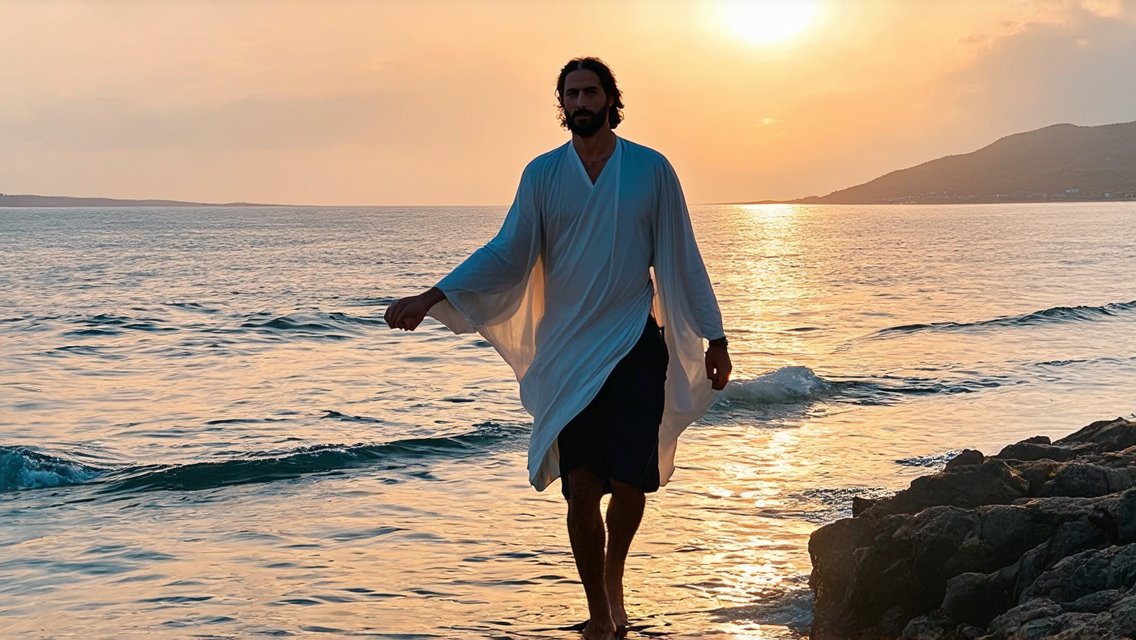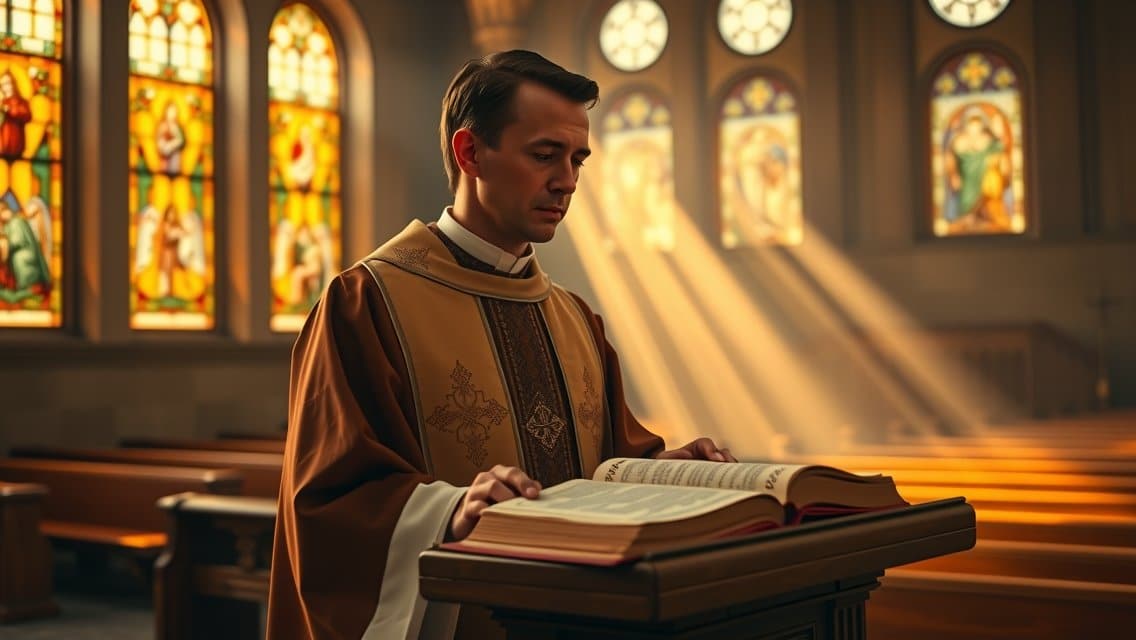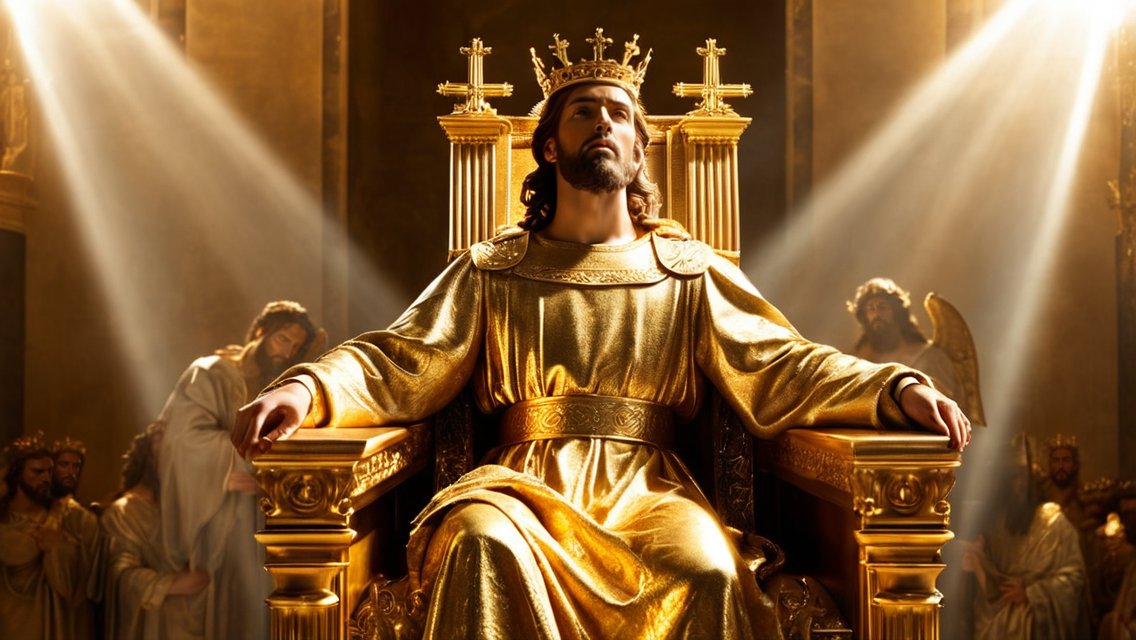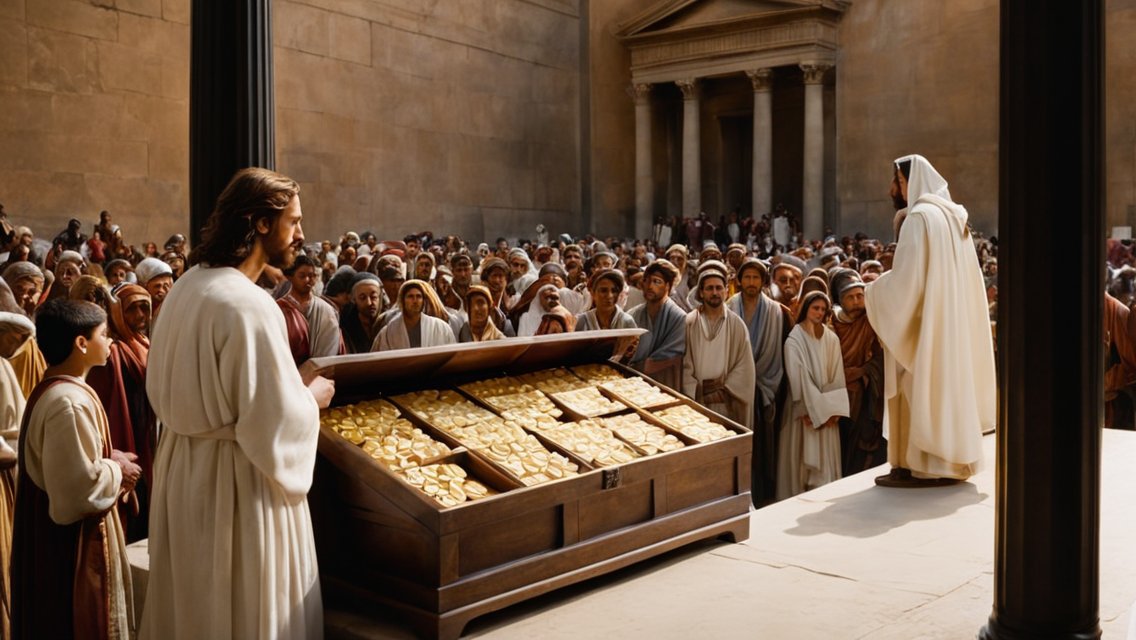Seventeenth Sunday Homily of the Ordinary Time – Year B
Readings:
2 Kgs 4:42-44
Eph 4:1-6
Jn 6:l-15
The Pearl of Great Value – Story :
This story reflects the Gospel message of the Seventeenth Sunday in Ordinary Time, illustrating how recognizing the value of the kingdom of God should lead us to prioritize it above all else.
1st Reading – 2 Kings 4:42-44
42 A man came from Baal-shalishah bringing to Elisha, the man of God, twenty barley loaves made from the firstfruits, and fresh grain in the ear. Elisha said, “Give it to the people to eat.”
43 But his servant objected, “How can I set this before a hundred people?” Elisha insisted, “Give it to the people to eat.” “For thus says the LORD, ‘They shall eat and there shall be some left over.’”
44 And when they had eaten, there was some left over, as the LORD had said.
Responsorial Psalm – Psalms 145:10-11, 15-16, 17-18
R. (cf. 16) The hand of the Lord feeds us; he answers all our needs.
10 Let all your works give you thanks, O LORD,
and let your faithful ones bless you.
11 Let them discourse of the glory of your kingdom
and speak of your might.
R. The hand of the Lord feeds us; he answers all our needs.
15 The eyes of all look hopefully to you,
and you give them their food in due season;
16 you open your hand
and satisfy the desire of every living thing.
R. The hand of the Lord feeds us; he answers all our needs.
17 The LORD is just in all his ways
and holy in all his works.
16 The LORD is near to all who call upon him,
to all who call upon him in truth.
R. The hand of the Lord feeds us; he answers all our needs.
2nd Reading – Ephesians 4:1-6
Brothers and sisters:
1 I, a prisoner for the Lord, urge you to live in a manner worthy of the call you have received,
2 with all humility and gentleness, with patience, bearing with one another through love,
3 striving to preserve the unity of the spirit through the bond of peace:

4 one body and one Spirit, as you were also called to the one hope of your call;
5 one Lord, one faith, one baptism;
6 one God and Father of all, who is over all and through all and in all.
Alleluia – Luke 7:16
R. Alleluia, alleluia.
16 A great prophet has risen in our midst.
God has visited his people.
R. Alleluia, alleluia.
Gospel – John 6:1-15
1 Jesus went across the Sea of Galilee.
2 A large crowd followed him, because they saw the signs he was performing on the sick.
3 Jesus went up on the mountain, and there he sat down with his disciples.
4 The Jewish feast of Passover was near.
5 When Jesus raised his eyes and saw that a large crowd was coming to him, he said to Philip, “Where can we buy enough food for them to eat?”
Homily
You Open Wide your Hand, O Lord
“They filled twelve baskets with scraps
left over from the meal of five barley loaves ” (In)
Five-year old, Raiu accompanied his mother to the grocer’s shop. Raju’s mummy spent a lot of money on her purchases, and the baniya was happy with his sales. Thus, he opened a tin of peanuts and said to Raju, “Here, son, take some nuts!” Raiu was quiet and declined to take the peanuts. “Go ahead!” said the baniya again and again, “Take some!” Raju refused. Finally, the baniya put his own hand into the tin and gave Raju a handful of nuts. Outside the shop, Raju’s mother asked him, “Son, normally you grab everything that’s given to you. Why didn’t you take the nuts yourself?” Raju said, “Mummy, my hand is small. I knew that if the baniya gave me with his hands, I’d get more peanuts!”
“You open wide your hand, 0 Lord, and grant our desires” is the beautiful refrain to today’s psalm (145). Human hands and hearts are small. The Lord’s hand and heart is immeasurable. When God gives, God gives abundantly – incalculable and overflowing. This glorious giving is the theme of today’s first and third readings.
The miraculous feeding by Elisha narrated in the first reading is not widely known but is prototype of the miraculous feeding in the Gospels. The pattern of the feeding narratives is the same: (a) food is brought to the prophet, (b) the amount is specified, (c) objections are raised that the quantity of food is inadequate, (d) ignoring objections, the prophet commands that the food be distributed, (e) the crowd has its fill, and there is excess food left over.
In John’s narrative of the feeding of the multitude, (a) a small boy offers his food, (b) the boy’s contribution amounts to five barley loaves and two fish, (c) objections are raised about the inadequacy of the food vis-a-vis the immensity of the crowd – here, Philip thinks in monetary terms and Andrew looks at the crisis solely from human perspective, (cl) Jesus ignores his disciples’ objections, prays, and then distributes the food, (6:) the people eat their fill and twelve baskets of leftovers are collected.
Today’s gospel brings to mind three events: past, present, future. First, the story is not only reminiscent of Elisha’s miraculous feeding but also of Yahweh’s manna miracle in the time of Moses. Second, Jesus’ action of ‘giving thanks’ and breaking bread is typical of the Passover meal and has present Eucharistic significance for us who ‘give thanks’ and ‘break bread’ at every Eucharist. Third, the story stresses that the people were filled. This sense of fulfillment is a foreshadowing of the final messianic banquet at the end of times.
Gandhiji said, “If God were to come to this world, he would come in the form of bread.” Jesus is Bread – satisfying human hungers with his words, his works, and his whole life broken and shared. Jesus challenges every Christian to be bread. Our breadness lies in our capacity to radically give of ourselves to others in self-sacrificing love.
The little boy who gives Jesus his bread is a role model for us. Like Raiu who knew that the baniya’s hand was larger than his own, the little boy perhaps sensed that Jesus would work wonders. Thus, he handed over all that he had into the Hands of the Master. Am I ready to hand over everything into His Hands?
Today, too many human beings live life with closed hands. Thousands die on our streets hungering for bread while the rich die due to overeating the bread snatched from those who toil with woefully inadequate wages. What is our response to poverty and hunger?
Let’s end with the prayer of Ignatius of Loyola: “Take Lord, my liberty, my memory, my understanding and my entire will. Take whatever I am and have. Give me only your love and your grace. With these, I am rich enough and desire nothing more.”






